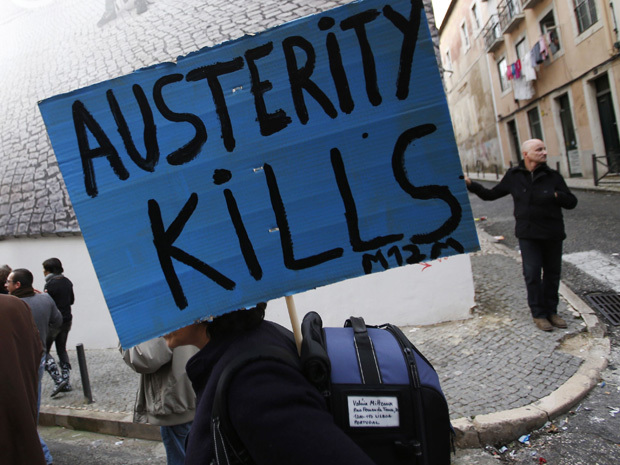On May 8, representatives from Canada’s five largest pension providers appeared before a hearing of the special parliamentary committee on Canada-China relations to answer questions about their funds’ activity in the Chinese market. The largest holder of Chinese assets is the Canada Pension Plan Investment Board (CPPIB), purportedly holding 9.8 per cent of its portfolio in China, with no indication of reducing exposure. A 2022 report by the Office of the Chief Actuary found that the CPP’s performance at the 2021 contribution rates was sustainable over the next 75 years, but the report was limited in its analysis, not considering looming geopolitical crises and relationships. The CPP’s Chinese exposure is susceptible to future geopolitical crises in Asia due to the CPPIB’s heavy reliance on the Chinese and Taiwanese economies. These dynamics should raise serious concerns.
In contemporary financial history, the Ukraine-Russia War should stand out as a cautionary example of how changing geopolitical risks can result in significant financial losses. Despite this, many investors, including massive asset managers like Blackrock and Vanguard, have publicly acknowledged significant losses due to Russian exposure, with Blackrock even admitting to $17 billion in total losses. Prior to the February 2022 Russian invasion, financial service companies, rating agencies, index providers, and bondholders had all ignored the signals of impending geopolitical crisis. Before the harshest sanctions were levied, some investors continued to invest in discounted Russian assets, betting on a cooling of tensions, only to be burned by the consequences of intensified violence. Many global investors have not grasped that modern international relations have changed. As Canadians contemplate future investment strategies, it will be imperative to acknowledge that the impressive financial gains witnessed over the past few decades, courtesy of globalization, may not be a reliable pattern for the future.
The war in Ukraine is only a minor crisis compared to the damage that a Chinese invasion of Taiwan could cause. The cases are comparable; in both conflicts, China and Russia claim to repatriate rogue provinces in strategic geopolitical areas, to the outrage of Western nations. Taiwan is arguably even more integral to the global supply chains than Ukraine. One of the most significant variables in a potential invasion of Taiwan is the production of advanced semiconductors, an industry to which the CPPIB is heavily exposed through both its own equities and passive investment. Currently, Taiwan Semiconductor Manufacturing Company (TSMC) produces more than 60% of the world’s semiconductors and 92% of the world’s cutting-edge chips. China’s growing global confidence increases the precarity of this vital source of semiconductors.
Xi Jinping’s contemporary “socialism with Chinese characteristics,” is increasingly incompatible with Western business practices because it stresses the dominance of the CCP central leadership more than under any leader since Deng Xiaoping. Xi’s power centralization wrested control back from local party officials to the central leadership. Xi’s model, dubbed the “China Dream,” frames the values that China wishes to promote. The China Dream links the country, the nation, and the people into an entity with a common fate of international greatness and increasingly views the RBIO as an obstacle to China’s rise. The CPPIB’s activities occur in one of the most vulnerable arenas of international competition; this means that Canadians are unquestionably susceptible to shocks that affect this issue area, as they contribute to these pension funds on a universal basis.
As modern Sino-capitalism involves the formal and informal centralization of business and state, collusion between the CCP and Chinese businesses enables the risk of weaponized economic interdependence against Western geopolitical and domestic financial interests through China’s own economy. The CCP has demonstrated a willingness to kneecap its own economy, as proven by its Zero-Covid Policy and the recent crackdown on its own tech sector, which comprised around 30% of China’s GDP. This crackdown resulted in significant losses for Chinese giants like Tencent and Alibaba, who have little hope for recovery, as party officials believed their focus on financial technology detracted from China’s long-term goals in what Xi Jinping calls core industries, such as hardware like microprocessors, semiconductors, electric batteries, and robotics. The CCP’s reforms in the tech sector are a planned geopolitical maneuver aimed at consolidating the state’s power. China’s fines for non-compliance with its new regulations are significantly higher than those imposed by a similar policy, the European Union’s General Data Protection Regulation (GDPR), and even apply to foreign companies that do not operate in China. The desired outcome for the CCP is to have leverage over foreign companies that depend on the Chinese market or replace them with Chinese alternatives. Both possibilities are unfavourable to the pension interests of Canadians.
China has demonstrated a willingness to incorporate Canada into a greater geopolitical power struggle between itself and the United States, a rational decision considering the shared values and history between the North American countries. Canada has also demonstrated a willingness to incorporate itself into the East-West geopolitical power dynamic, as indicated by the Canadian arrest of Huawei’s Meng Wanzhou for conspiracy to commit fraud to evade U.S. sanctions on Iran.
These risks, whether through Chinese weaponized interdependence or the CPPIB’s exposure to uncontrollable geopolitical crises, should raise concerns for Canadian policymakers. It is imperative for the CPPIB and other pension managers to consider how they contribute to China’s bargaining power over Canada. It is also important to consider that China is a rational actor, making decisions based on increasing self-reliance and a willingness to dispel perceived agents of Western power and economic growth in the interest of Beijing’s self-strengthening in the international system. In its future strategy, the CPPIB should reconsider its approach to Asia by adopting a more active stance towards its activity in China. This would involve focusing on the least contentious Chinese equities while advancing interests with countries that better align with Canadian international interests.
Photo: “The Dazzling Gooderham Building on a Cloudy Day” (2022) by Miguel Barrera via Pexels. Public Domain.
Disclaimer: Any views or opinions expressed in articles are solely those of the authors and do not necessarily represent the views of the NATO Association of Canada.




